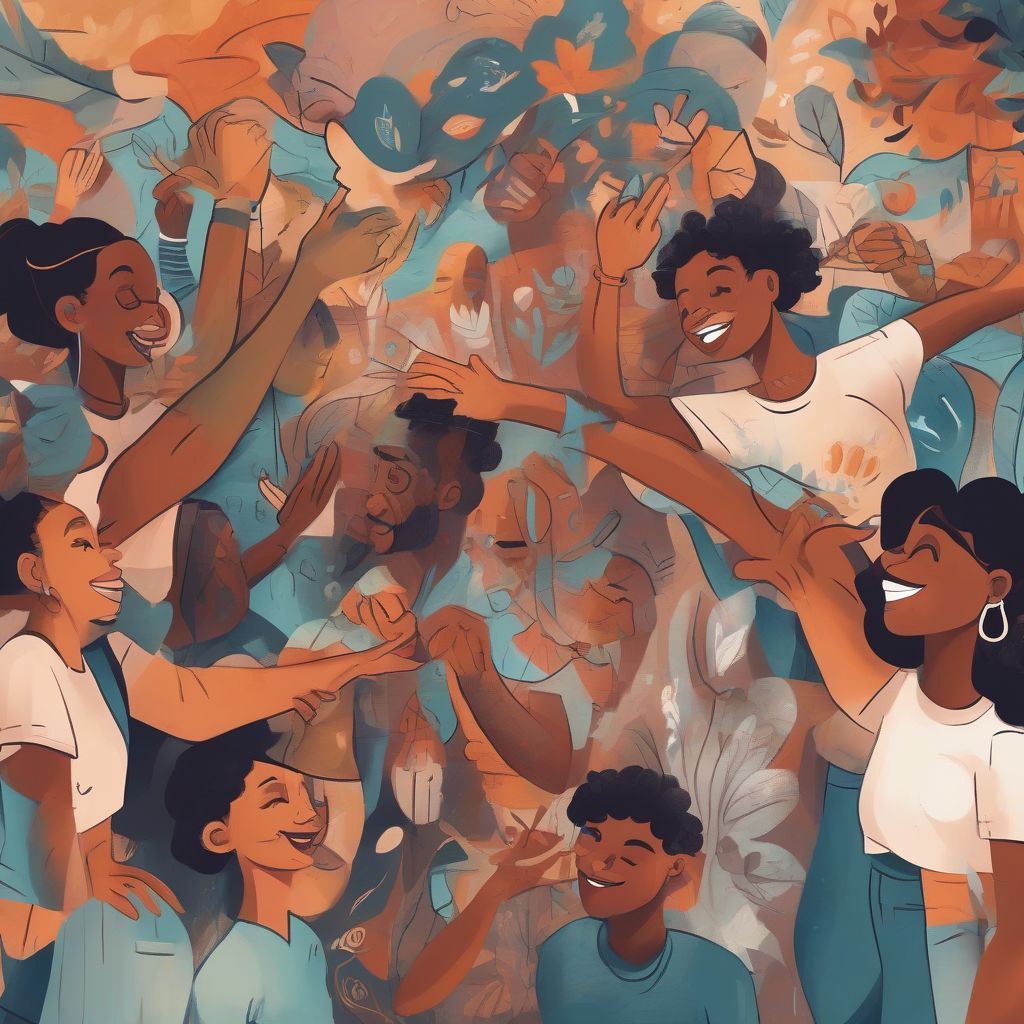Have you ever wondered what separates truly exceptional creatives from the rest? Talent, skill, and hard work are undoubtedly crucial, but there’s a secret ingredient that often goes unnoticed: emotional intelligence (EQ). It’s the ability to understand and manage your own emotions, as well as recognize and influence the emotions of others. While technical prowess is important, EQ is the fuel that ignites creative breakthroughs, builds strong collaborations, and ultimately, drives success in any artistic pursuit.
Understanding the Power of EQ in Creativity
EQ isn’t about being “nice” or suppressing emotions. It’s about harnessing the power of emotions to enhance your creative process. Think of a musician pouring their heartbreak into a song, a painter expressing their joy through vibrant colors, or a writer crafting compelling characters with complex emotional depths. These are all examples of how EQ can be channeled to create impactful and resonant work.
Self-Awareness: The Foundation of Creative Growth
Self-awareness, a cornerstone of EQ, allows you to understand your own emotional landscape. By identifying your strengths and weaknesses, recognizing your triggers, and understanding how your emotions influence your work, you can cultivate a more focused and productive creative process. Imagine a writer struggling with writer’s block. By recognizing the underlying anxiety fueling the block, they can address the root cause and unlock their creative flow.
Self-Regulation: Mastering the Creative Rollercoaster
The creative journey is rarely a smooth path. Self-regulation, another key component of EQ, empowers you to navigate the inevitable ups and downs. It’s about managing impulses, staying motivated despite setbacks, and maintaining a positive outlook even when faced with criticism. A designer who receives harsh feedback on their work can use self-regulation to avoid defensiveness, objectively analyze the critique, and use it to improve their designs.
Motivation: The Driving Force Behind Creative Pursuits
Intrinsic motivation, the drive to create for the sheer joy of it, is essential for long-term creative success. EQ fosters this inner fire by helping you connect with your passion, set meaningful goals, and maintain a sense of purpose. A filmmaker driven by a deep desire to tell stories that inspire change will be more likely to persevere through the challenges of filmmaking than someone solely motivated by fame or fortune.
Empathy: Connecting with Your Audience
Empathy, the ability to understand and share the feelings of others, is crucial for creating work that resonates with your audience. By stepping into their shoes, you can anticipate their needs, address their concerns, and craft experiences that truly connect. A comedian who can empathize with their audience’s experiences will be able to deliver jokes that are not only funny but also relatable and meaningful.
Social Skills: Building Bridges in the Creative World
Collaboration is often essential in creative endeavors. Strong social skills, another facet of EQ, facilitate effective communication, build trust, and foster positive working relationships. A director with strong social skills can effectively communicate their vision to the cast and crew, creating a collaborative environment that leads to a more cohesive and compelling film.
Practical Applications of EQ in Creative Fields
How does this translate to real-world success? Consider the following examples:
-
A graphic designer with high EQ can effectively interpret a client’s brief, understanding not just their explicit requests but also their underlying needs and desires. This leads to designs that not only meet the technical requirements but also resonate emotionally with the client and their target audience.
-
A musician with strong self-awareness can identify their unique musical style and develop their artistic voice. They can also effectively manage performance anxiety, allowing them to deliver captivating performances.
-
A writer with high empathy can create characters that are complex, relatable, and emotionally resonant. They can also navigate the often-challenging world of publishing by building strong relationships with editors and agents.
 Emotional Intelligence in Creative Work
Emotional Intelligence in Creative Work
Cultivating Your Emotional Intelligence
The good news is that EQ is not a fixed trait. It’s a skill that can be developed and honed over time. Here are some strategies to enhance your EQ:
- Practice mindfulness: Pay attention to your emotions without judgment. This allows you to understand your emotional patterns and triggers.
- Seek feedback: Ask trusted colleagues or mentors for honest feedback on your interpersonal skills.
- Develop your empathy: Actively listen to others and try to understand their perspectives.
- Practice self-regulation: Develop strategies for managing stress and difficult emotions.
Conclusion: Embracing the Power of EQ
Emotional intelligence is not just a “soft skill.” It’s a powerful tool that can unlock your creative potential and propel you towards success. By cultivating your EQ, you can navigate the creative landscape with greater resilience, build stronger relationships, and create work that truly resonates with the world. So, embrace the power of EQ and unlock your full creative potential! What are your thoughts on the role of emotional intelligence in creativity? Share your insights and experiences in the comments below! Explore more articles on creativity and personal development on our website.
- Co, MindfulMinds (Author)
- English (Publication Language)
- Reads, Gelena (Author)
- English (Publication Language)
- TalentSmart; Har/Dol En edition (June 16, 2009)
- Emotional Intelligence 2.0 Hardcover – June 16, 2009 By Travis Bradberry
- Amazon Kindle Edition
- Goleman, Daniel (Author)
- Hardcover Book
- Travis Bradberry (Author)
- Williams, Theresa (Author)
- English (Publication Language)
- Hardcover Book
- Greaves, Dr. Jean (Author)
- Bradberry, Travis (Author)
- Spanish (Publication Language)










